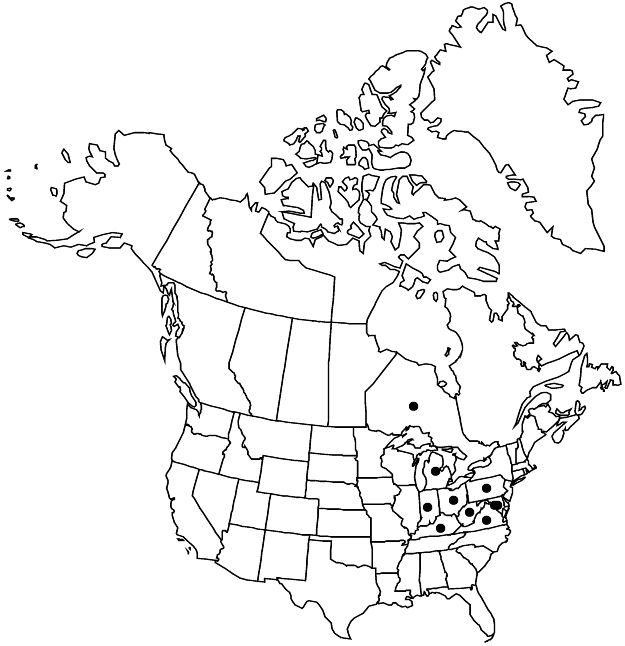Sida hermaphrodita
Mem. Torrey Bot. Club 5: 223. 1894.
Herbs, perennial, 1–2.5 (–5) m. Stems erect, minutely stellate-hairy when young, soon glabrate. Leaves: stipules free from petiole, linearlanceolate, 3–4 mm, shorter than petiole; petiole to 0.9 mm, shorter than blade, glabrous; blade palmately 5–7-lobed, maplelike, to 24 cm, ± as long as wide, smaller upward, base cordate, margins serrate, apex long-acuminate, surfaces glabrous. Inflorescences axillary, subumbellate, 2–10-flowered pedunculate corymbs, forming terminal panicles. Flowers: calyx dark-pigmented basally, unribbed, not angulate, 4–5 mm, minutely stellate-hairy, lobes wide-triangular; petals white, 8–10 mm; staminal column hairy; style 8-branched. Schizocarps subconic, 6–8 mm diam., minutely stellate-hairy; mericarps 8, not reticulate, apex beaked. 2n = 28.
Phenology: Flowering late summer.
Habitat: Along streams, roadsides, railroad embankments, disturbed sites
Elevation: 50–200 m
Distribution

Ont., D.C., Ind., Ky., Md., Mich., Ohio, Pa., Va., W.Va.
Discussion
Some occurrences of Sida hermaphrodita may be the result of escapes from cultivation. It is generally rare except locally common along the Kanawha and Ohio rivers in Ohio and West Virginia (D. M. Spooner et al. 1985); it has been extirpated from Tennessee. Reports from Massachusetts, New Jersey, and New York refer to garden escapes. The species may or may not be native in Michigan.
Selected References
None.
Lower Taxa
"wide" is not a number.